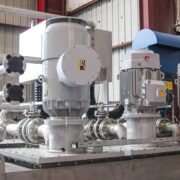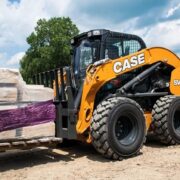In the digital age of today, big data is taking on an increasingly larger role in many industries. Most companies rely on data analytics to drive decisions and plan business operations. The wedding planning and event management industry is no exception. As people around the globe are becoming more dependant on their smart devices, and it has become easier than ever for wedding planners to gather and use data to cater to clients and their guests. Wedding planners can leverage big data to deliver highly customized events and increase attendee engagement.
In today’s day and age, wedding day expectations have soared due to the availability and quality of the options out there. Wedding couples today are desperate to make their special day the ultimate Pinterest-worthy event of the year. According to one study, the costs associated with weddings have increased a whopping 370% since the year 1974! The average wedding cost in the US is landing around $29,200. This average, however, doesn’t even consider the engagement ring or the honeymoon. With such high price tags for weddings, planners are turning to data science to ensure that they deliver the best experiences possible. Let’s take a look at how data analytics is influencing the planning and management of weddings today.
Table of Contents
Data Analytics
So, what are data analytics? Generally speaking, it refers to analyzing the enormous amounts of big data that is harvested. This can include raw data, historical data, real-time data, and other information sets. The data itself might not be useful on its own, however, the insights, trends, and patterns gained from the data are what most planners are interested in.
Wedding planners can use big data to organize personalized events, increase guest engagement, and deliver enhanced event experiences. Drawing data from all available sources such as the guest list, wedding invite responses, social media accounts, venue data, and other sources will help planners create a customized event tailored to the bride and groom, their wedding party, and their guests. Data analytics has been used for a while now to inform better business decisions. It can now be used to create better weddings and events.
Insight From Analytics
Analytics can help planners determine the specific interests of couples and their guests. Access to the right information will allow for the discovery of client expectations. Collecting online search data and using pre-wedding survey forms to gather information directly from your clients will be a good place to start. You can also browse through social media accounts and posts, family member input, as well as wedding party surveys to gain key insights into the personality and characteristics of your couple. You might also take a look through their wedding registry to look for any possible information.
Once you have information about your couple, you might want to next focus on the guests. Big data can allow you to identify different factors that might impact guest behavior. Take into account the wishes and interests of your couple as well as venue data and apply that to the event management aspect of the wedding. You’ll be able to predict guest trends that will help you plan a better overall event.
Wedding Blueprint
As a wedding planner, you can think of the ceremony, reception, and accompanying brunches and dinners as a series of interactions, or touchpoints that all create one cohesive experience. Wedding planning requires thinking about all of the elements that make up the entire wedding experience. How will all of the major elements of the wedding look, act, and sound? Planners have to create cohesion across all touchpoints from the wedding party to the venue to the caterer.
Data analytics will help create a service design or phase framework to lay out all of the details. This will also allow you to formulate a plan to create an event that is a cohesive experience that aligns with the vision of the couple.
Applying the concepts of data science to planning and managing a wedding can be a beneficial strategy. Insights, patterns, and trends gained from data analytics tools will allow wedding planners to craft a memorable experience for wedding clients and guests alike.


















Comments